Rec Sports
Scotland Juneteenth Fest Offers Week of Events

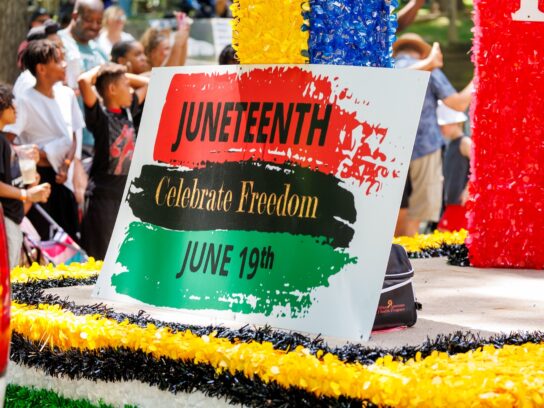
The Scotland Juneteenth Heritage Festival—hailed as the largest Juneteenth celebration in the DMV—is back for its third year, offering a week of music, cultural events, youth activities, and family fun.
Organized to honor and support historic Black communities across the region, the festival will take place June 15-19 in Potomac. Tickets are now available for several events, with many offerings free to the public.
Week of Events
Interfaith & Father’s Day Brunch
The festival kicks off with an Interfaith & Father’s Day Brunch on Sunday, June 15, from 9 a.m. to 1 p.m. at Lakewood Country Club. Dr. John Paul McGee will deliver the keynote sermon, accompanied by a performance from the Scotland A.M.E. Zion Church Choir.
Tickets are $65.
Youth Sports Clinics – Free Admission
Empowering the next generation is a key focus of the festival, which includes free youth sports clinics throughout the week:
- Dance & Cheer Clinic with the Washington Commanders Entertainment Team: Monday, June 16, 6–8 p.m., Cabin John Middle School Gym. Reserve a spot.
- Basketball Clinic led by Coach Eric Smith: Tuesday, June 17, 6–8 p.m., Cabin John Middle School courts. Reserve a spot.
- Football Clinic hosted by Club 480 and the Churchill Bulldogs: Wednesday, June 18, 6–8 p.m., Winston Churchill High School Stadium. Reserve a spot.
Spots are limited; advance registration is required.
Juneteenth 5K Road Race & 1-Mile Family Walk
The annual race invites runners and walkers of all ages to celebrate along 7 Locks Road, passing the historic Black community of Scotland. The event begins at 8 a.m. on Thursday, June 19, at Bells Mill Elementary School.
5K registration is $33; the family walk is $23.
Register.
Family Carnival and Parade – Free with Ticket
The festival’s grand finale, a Family Carnival, features live performances, a parade with marching bands, carnival rides, games, crafts, a petting zoo, face painting, and food trucks.
Admission to the park is free, but attraction tickets are required. Tickets are free through June 1 and $5 per person after.
Register.
How to Participate
Visit Scotland Juneteenth Heritage Festival’s website to reserve or purchase tickets, register for events, and learn more about the full schedule.
The festival’s theme—Celebrate Community, Honor Culture, Embrace Freedom—reflects its mission to bring people together in joy, remembrance, and unity.
Photo courtesy Montgomery Parks
Rec Sports
Stockton students making an impact in community with school Police Explorers
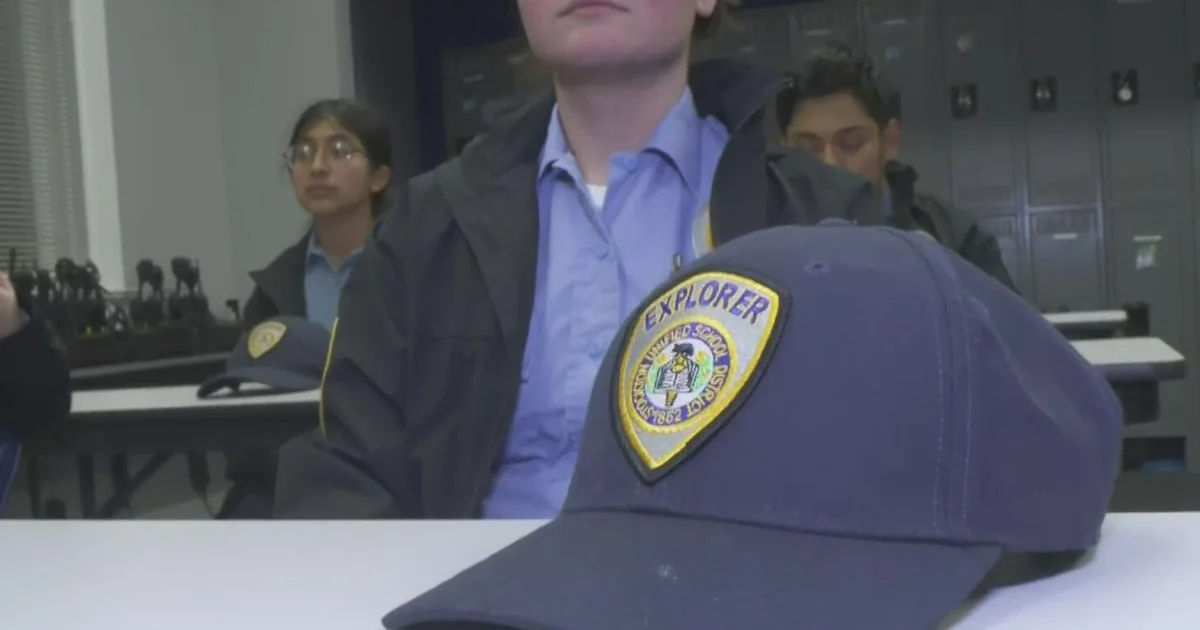
Stockton students are making an impact in their community by participating in a police program that gives them opportunities to do community outreach and learn the ins and outs of what it takes to work in law enforcement.
From getting an athletic scholarship to joining the military to becoming police officers, the Stockton Unified School District Police Explorers’ mentors are helping students accomplish their dreams.
“It’s definitely an outlet,” Officer Anthony Tacardon said. “Coming up, growing up in Stockton, there’s not much to do. I mean, you can go around and hang around at the mall, but for how long does that get boring and a safe place…yeah, this place (Explorers) you just come in, you enjoy yourself, you learn, you not only build connections with people that you meet here, you build connections outside of it with the community engagement. And that’s one of the best things. You get to speak with people in your community besides being at home, stuck, locked up in your room.”
That’s where the Stockton Unified School District Police Explorers come in. CBS Sacramento was given access to a day-in-the-life of what a Stockton Police Explorer goes through and how they help in the community.
“Some kids have sports, some kids have clubs, but we have this,” explorer and sophomore Kylah Cadman said.
Since its inception in 2013-14, Captain Roberto Marquez said it’s the largest Explorer program in San Joaquin County. The program and its mentors are making an impact with students, like Officer Anthony Tacardon, who is an explorer alumnus.
“When I graduated, that was the best feeling,” Officer Tacardon said. “All the hard work I had put in, in the Explorer program that ultimately helped me better prepare for the Academy, graduating and getting to see my mentor.”
Officer Tacardon’s mentor through the academy and the program was Captain Marquez.
“I didn’t have anyone to teach me this stuff as I was growing up in south Stockton, and I know there are some other kids here that don’t have that type of upbringing, but having this program here, it allows us to be our role models for our youth,” Captain Marquez said.
That includes the 24 explorer cadets who are in the program now, who learn life skills, are given real-world police training, are able to learn from sworn officers and non-sworn staff, and volunteer at community events.
Heriberto Garcia graduated from high school and is an Explorer. Ever since he was a kid, he’s dreamed of becoming a police officer. He said before this program, he was shy, and now, he was leading his comrades in the roll call excellently and his peers wouldn’t even know he used to be shy.
“Some students, they be like, ‘Oh, there’s nothing to do in high school or like there’s nothing to do in Stockton, right?'” Garcia said. “But, when you engage to a program like this, most likely weekend, we’ll have a community service that we have to go and we will attend because we like what we do in this program. So, it’s nothing that they force us to do but it’s something that we like to do.”
Cadman said this program has helped her grow as a person and she enjoys being able to help people to better their community.
“I like the social aspect of our program, in that we get to help the community, we get to help fellow students and it’s just really nice to get to know people and to help out however we can,” Cadman said.
Freshman Madalyn Westervelt was inspired by her big brother, who was also a part of the program.
“It really helped me with my confidence, public speaking, my socializing skills…,” Westervelt said. “That was a really big part of me, going to the high school that I was going to and it just helped me succeed a lot with making friends and being able to introducing myself without being like stuttering or being uncomfortable around other people. It’s just a very big focus for me, like it helped a lot.”
Even for students who aren’t necessarily interested in pursuing a career in law enforcement, this program also gives students the opportunity to learn crucial life skills that are crucial and transferable to any career they dream of pursuing.
“The discipline that we learn from them, the leadership skills, the responsibility, it’s all taught all of us to become greater in our own personas,” Maritza Matias-Pablo, a junior and explorer, said.
Captain Marquez is proud of these explorers, including knowing how the community gets to see the positive work they do.
“I think a program like this makes them realize that it’s a person that makes themselves and it’s not where they came or where they grew up or people around them,” Captain Marquez said. “It’s the actual person and what’s inside of you. If you want to be positive, if you want to be a good leader, a good role model for other students, you can do that.”
The camaraderie, communication, and connection to mentors, peers after school, and throughout the community have led these explorers to some healthy competition, winning multiple awards conducting mock real-life scenarios. They have around 30 trophies they’ve won at competitions against other explorer teams throughout California, where police officers give out the scores.
They’re looking to add more trophies, along with more explorers. If you or your kids are interested, you can stop by their police station at 640 N San Joaquin St. in Stockton on Thursdays from 6-8 pm, where you can shadow what their classes are like and learn more.
Rec Sports
NHL program to host youth hockey clinics in Big Sky
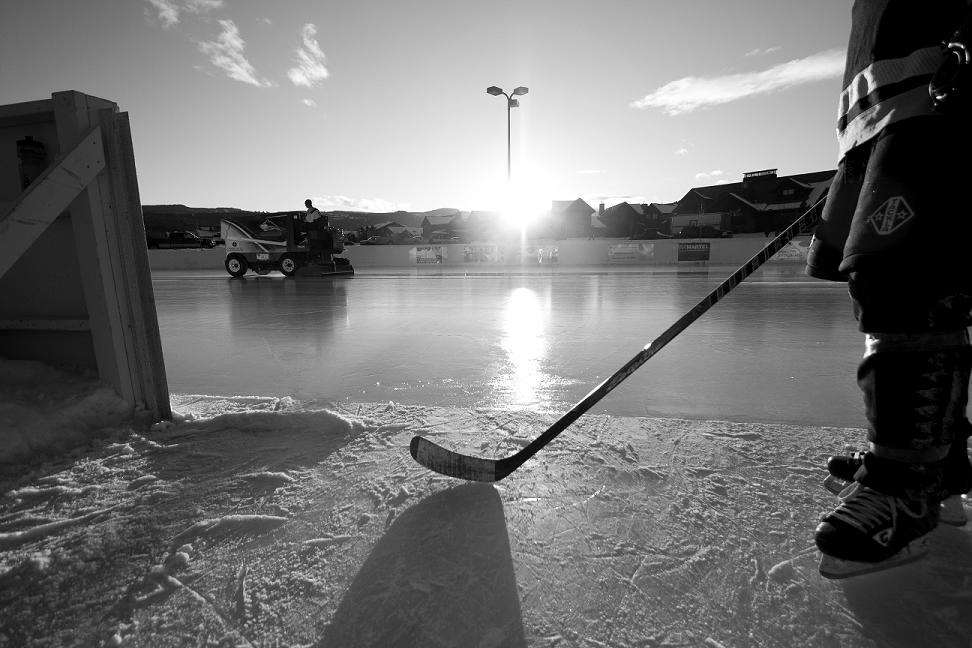
Las Vegas Golden Knights to host autographs, photos with Deryk Engelland, and mascot on Jan. 4
By Jen Clancey STAFF WRITER
Youth hockey players will have the opportunity to learn to play, or sharpen their skills in the game starting Sunday, Jan. 4 at the Marty Pavelich Ice Rink in Big Sky. The Las Vegas Golden Knights team, on their 10th season in the National Hockey League, will lead a five-week clinic, teaching players from ages 4-11 how to play hockey each Sunday from Jan. 4 to Feb. 1. The Golden Knights will also hold a free clinic for players aged 9-13 on Sunday, Jan. 4, at 11 a.m.
For both clinics, players need prior skating experience. Those who registered for the paid clinic for ages 4-11 will receive a full set of complimentary hockey equipment shipped to them ahead of the first session. Participants in the free clinic should bring full gear to use.
Steven Reid, recreation manager for Big Sky Community Organization, the nonprofit that operates and maintains the ice rink, estimates that between 20 and 25 kids are registered for both the five-week session and the free clinic. Families pay $275 for the five-week session with new hockey gear included, which is subsidized by the NHL to keep costs low for participants.
“You know, anyone who’s been around the sport of hockey knows that hockey gear is not cheap,” Reid said. “And to get that much brand new hockey gear out to these kids, that’s huge and hopefully will get them interested in playing the sport.”
Reid is glad to see families signed up for the five week session.
“The fact that we have 20 to 25 kids signed up for that alone means that’s a potential 20 new hockey players in our community right there and the hope is that they feed into the local youth hockey program and continue to grow there with those coaches,” Reid said. The local youth hockey program is organized by the Montana 64’s Hockey Association, which recently formed as a nonprofit.
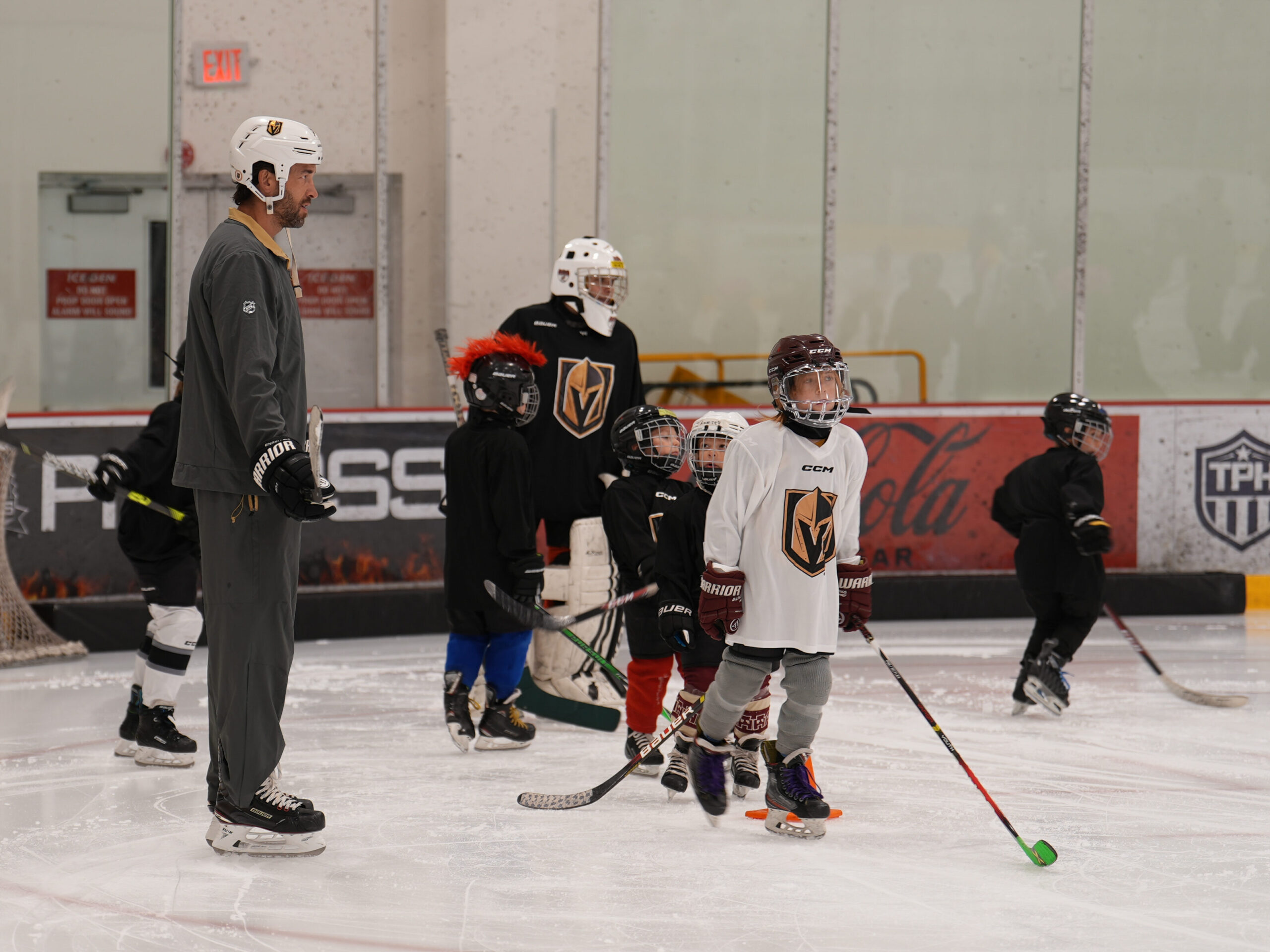
Sheri Hudspeth, director of youth programs and fan development with the Las Vegas Golden Knights, reached out to BSCO with the hopes of scheduling the youth clinic in Big Sky to engage younger kids in the sport and reach further audiences for the Golden Knights. From there, BSCO and the Golden Knights sorted out use of facilities and local involvement.
Outside of youth learning, the clinic will also train coaches on how to teach hockey, with local community members Cassie Dietz, Keelan Grupe, Brandon Maki and Jack Murray participating in coaching the clinics, learning practice plans and leading kids throughout the five-week session.
BSCO hopes this clinic can become an annual tradition with the Golden Knights.
“My hope is to not only bring new kids into the sport of hockey, but get some adults interested in coaching and being good role models in that sport for the kids,” Reid said.
From 9-10 a.m. on Jan. 4, Deryk Engelland, a former ice hockey defenseman for the Golden Knights will be at the rink to meet fans and give autographs. Chance, the team’s mascot will also be there as well as Hudspeth, who has more than 30 years in playing and coaching hockey. Reid said Sunday’s events will be a fun atmosphere for families and participants.
Rec Sports
Tacoma Light Trail
Tacoma’s
signature winter arts event returns with illuminated installations, interactive
displays, and neighborhood-based light art spanning downtown and Hilltop. The
trail draws thousands of visitors nightly and encourages self-guided
exploration throughout the city. Installations are spread across multiple
districts, making it one of the region’s largest winter events.
Downtown & Hilltop Tacoma
Rec Sports
Parents of motocross star Aidan Zingg file wrongful death lawsuit
Dec. 31, 2025, 4:25 p.m. ET
The parents of Aidan Zingg, a 16-year-old motocross star who died June 28 during a race in Mammoth Lakes, Calif., submitted a wrongful death and survival lawsuit to the Superior Court of California in Riverside County for filing against the American Motorcyclist Association (AMA) and other entities involved in the race, according to an electronic confirmation generated by the court Tuesday, Dec. 30.
The parents alleged the fatal collision was preventable and resulted from careless race operations and defective safety equipment, according to a copy of the complaint reviewed by USA TODAY Sports.
After initially going down on the track, Aidan was conscious and alert as he made attempts to regain his feet, according to the complaint, which states no caution flags or warnings were raised by race operators as the race continued at Mammoth Mountain Motocross.
According to the complaint, Aidan’s jersey and equipment showed visible signs of being struck by at least one other rider, according to the complaint, which says the chest protector Zingg wore during the race was punctured.
Despite efforts to perform life-saving measures on Aidan, he was pronounced dead at Mammoth Hospital later that day, according to the complaint.
According to the electronic confirmation of the filing, the documents submitted to the court by the Zinggs’ attorney will be accepted, partially accepted or rejected by the Clerk of Court. The confirmation provides no timetable for the process to be completed.
A wrongful death lawsuit seeks compensation for surviving relatives based on the economic and emotional impact of the death. A survival action lawsuit seeks compensation for costs the deceased person may have incurred before death and compensation for the deceased person’s conscious pain and suffering from the time of injury to death.
“Most of all, the Zingg family is seeking transparency and accountability wherever it is fair and just,” attorney Kevin Biniazan, representing the family, said in a statement provided to USA TODAY Sports. “If this legal action motivates safer operations of these races and equipment that these riders wear in a way that saves another family from enduring what the Zinggs have endured and will continue to endure, it will have been a success.”
Is Motocross the deadliest sport for youth? An Investigation
Aidan is one of at least 158 children and teens who have died on dirt bikes and at motocross tracks since 2000, according to a USA TODAY Investigation. That makes it the deadliest sport for young people – roughly seven times greater than tackle football.
During the USA TODAY investigation, a spokesperson for the AMA said it has longstanding safety protocols for its sanctioned events and can’t control unaffiliated tracks.
But the lawsuit filed by Aidan’s parents, Robert and Shari, says Mike Burkeen, Deputy Director of Racing for the AMA, was present at Mammoth Motocross June 20-29 and “possessed the responsibility and authority to manage the racing activities to preserve the safety of riders.’’ The races were sanctioned by the AMA.
In addition to the AMA, other defendants named in the lawsuit include 2XP LLC, a California-based company that worked with the AMA to promote the annual amateur races; Alterra Mountain Company U.S. Inc., a hospitality company in Denver that owns Mammoth Mountain; and Revelyst Adventure Sports that does business as Fox Racing and manufactures motocross protective equipment, including the chest protector Aidan wore during the fatal crash, according to the complaint.
The AMA and 2XP, according to the complaint, entered into a joint venture and agreement “to plan,organize, operate, promote, and oversee the motocross racing at Mammoth Motocross.”
The defendants did not immediately respond to requests for comment USA TODAY Sports submitted by phone, text message and email.
Aidan Zingg’s death timeline, according to complaint
The day of the race, Aidan, a prodigy with Kawasaki’s prestigious Green Team program, was participating in the morning 250B class race, according to the complaint. The complaint says Aidan went down after rounding the corner at Turn 9, which was the furthest from the start line where most spectators were located, according to the complaint.
The corner was left unmanned by flaggers, who raise and wave flags to communicate cautions and dangers, including when a rider goes down, according to the complaint. The complaint described that decision to leave the turn unmanned as a, “particularly reckless decision.’’
No caution flags or warnings were raised by race operators when Aidan went down and, according to riders, he was conscious and attempted to regain his feet. He was found later face down on the racetrack.
The race had continued for approximately three more laps before it was stopped, according to the complaint, which says Aidan’s father became alarmed when he did not see his son lap the track with the other riders, according to the complaint.
Making his way to the back of the track, Aidan’s father saw his son on the track, according to the complaint, which says Aidan’s father and others “swarmed’’ to render aid, but Aidan was pronounced dead at Mammoth Hospital later in the day.
The complaint also cited design, construction, and maintenance or some combination thereof, in creating “a dangerous condition at Turn 9 because of a near hairpin turn coming out of a jump and into another.”
“The design, construction, and maintenance of Turn 9 increased the risk of riders crashing into each other while riding or crashing into a rider who had fallen on the track and created a heightened risk of injury by participating in Mammoth Motocross as compared to other motocross races or tracks,’’ according to the complaint.
The AMA and 2XP “coordinated and approved a crowded field of 29 riders’’ who competed in the 250B class race.
Aidan’s parents have demanded a jury trial and are seeking damages, including but not limited to, pain, suffering, and disfigurement and other losses or damages that the decedent sustained or incurred before death, according to the complaint.
Rec Sports
Downtown ballpark, statewide games lead Richmond’s 2026 sports lineup | Richmond Free Press
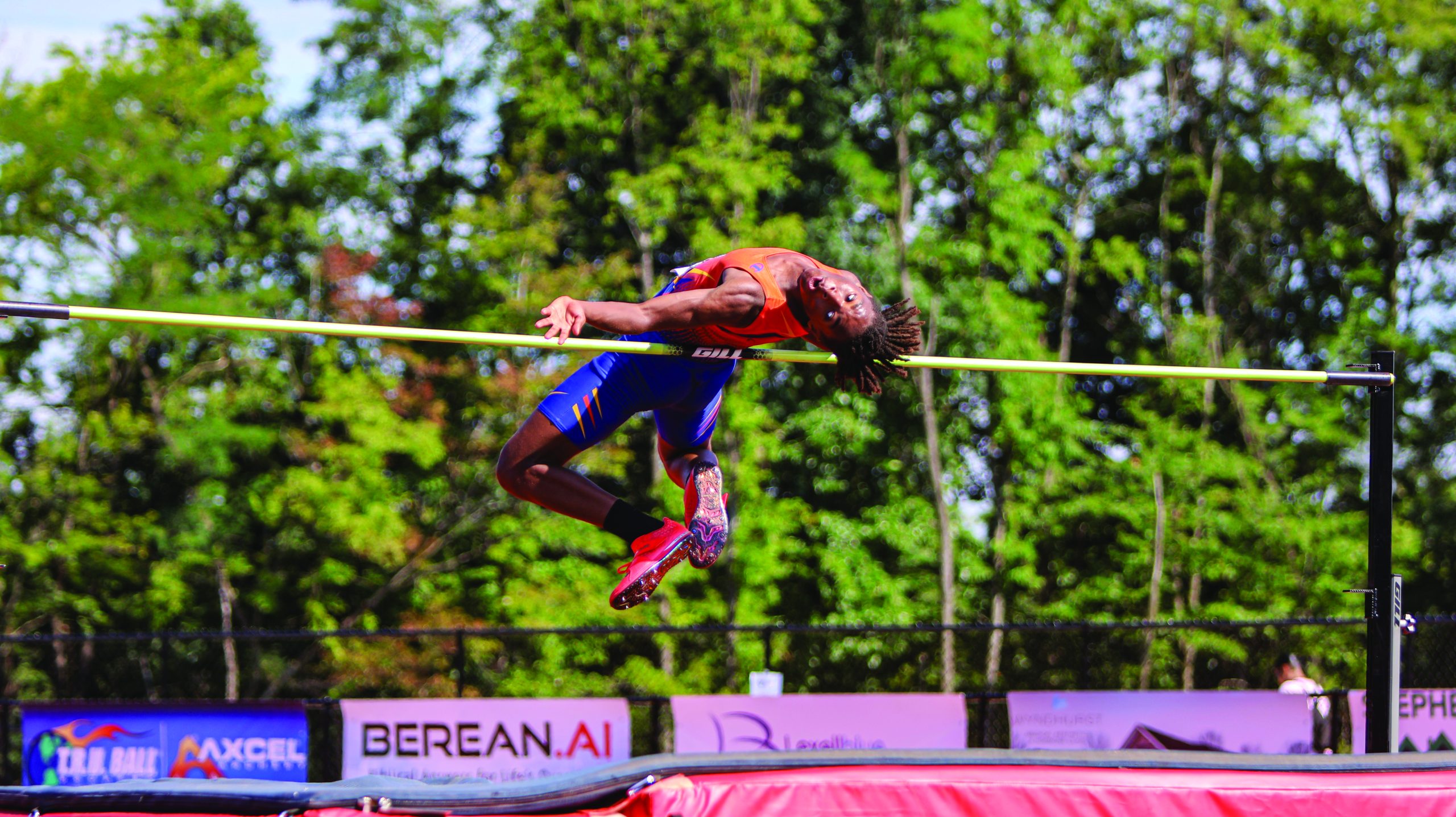
Richmond will open a new downtown ballpark and host relocated statewide games while the region welcomes back professional golf and NASCAR among a packed calendar of sporting events in 2026.
The Richmond Flying Squirrels will play their first game at CarMax Park on April 7, marking the end of a decades-long effort to replace The Diamond. The 10,000-seat facility cost about $115 million and features a 360-degree concourse, wider seats and a 32-by-115-foot video board. The ballpark will host 69 Flying Squirrels games as well as concerts and festivals throughout the year.
The Virginia Commonwealth Games will move to the Richmond region in 2026 after 10 years in Lynchburg. The multisport event draws athletes of all ages across more than 30 sports at venues in Chesterfield and Henrico counties. More than 310,000 people have participated since the games began 36 years ago. Richmond has committed to hosting the event for three years.
Henrico will host the DIII Champions Classic on Dec. 28-29 at the Henrico Sports & Events Center, a new regular-season showcase featuring past NCAA Division III men’s basketball national champions. The inaugural field includeds Randolph-Macon College, the 2022 national champion; Christopher Newport University, the 2023 champion; Babson College, the 2017 champion; and the University of Scranton, which won titles in 1976 and 1983. The two-day event is designed as a national in-season destination for Division III programs.
The Virginia Sports Hall of Fame will induct six people on April 25 at the Hilton Richmond Hotel & Spa/Short Pump. Former NFL quarterback Michael Vick and former NBA player Grant Hill headline the class. University of Virginia men’s basketball coach Tony Bennett, youth basketball coach Marcellus “Boo” Williams and former WNBA player Kristi Toliver will also be inducted. Businessman Bobby Ukrop will receive the Distinguished Virginian award.
LIV Golf will hold its Virginia tournament May 8-10 at Trump National Golf Club Washington, D.C., in Northern Virginia. The field includes major champions Bryson DeChambeau, Jon Rahm, Brooks Koepka and Phil Mickelson. The event drew large crowds when it debuted at the venue in 2023.
Richmond Raceway will host NASCAR races on Aug. 14-15. The NASCAR Craftsman Truck Series runs Friday night at 7:30 p.m., with the Cook Out 400 Cup Series race scheduled for Saturday evening at 7 p.m. The raceway sold out its 2025 race weekend.
Other events included the 4 Tha Culture Holiday Hoops Classic women’s basketball tournament Nov. 25-28 at the Henrico Sports & Events Center; the U.S. Youth Futsal National Championships, also at the Henrico facility; and the Allianz Richmond Marathon on Nov. 14.
 A rendering of an aerial view of CarMax Park, Richmond’s $90 million downtown ballpark opening April 7, 2026. The 10,000-seat stadium will host Flying Squirrels games, concerts and festivals throughout the year. (Photo courtesy Richmond Flying Squirrels )
A rendering of an aerial view of CarMax Park, Richmond’s $90 million downtown ballpark opening April 7, 2026. The 10,000-seat stadium will host Flying Squirrels games, concerts and festivals throughout the year. (Photo courtesy Richmond Flying Squirrels )
Rec Sports
Big Bend residents split on proposed massive youth sports complex plan

BIG BEND — Big Bend residents are divided over a proposed youth sports complex that would transform farmland into one of Wisconsin’s largest athletic facilities.
The development would be located along Big Bend Road and Town Line Road in the Waukesha County village of 1,500 people. Developer Eric Weishaar plans to build indoor and outdoor baseball, soccer and lacrosse fields, along with 1,500 parking spots, a hotel, restaurants and retail space.

Breck Athletics Complex
Developer documents show the complex would feature architecture resembling a Colorado mountain town. If approved, the facility aims to become a premier youth sports destination for national tournaments by 2027.
The proposal has created tension among residents. James Schmittinger, who moved to the area for its quiet, rural atmosphere, strongly opposes the plan.
Watch: Big Bend residents split on proposed massive youth sports complex plan
Big Bend residents split on proposed massive youth sports complex plan
“Why Big Bend? Why this location? Pick a location where you don’t have so many residents around,” Schmittinger said. “To see this coming here breaks my heart.”

TMJ4
Schmittinger said he would sell his home if the complex is built, citing concerns about traffic, noise and lighting from nighttime games.
“Those games usually go into nighttime, then you have all these bright lights going on,” Schmittinger said.
Weishaar acknowledged residents’ concerns and said he wants to be a good neighbor.
“We’re actually spending more money on specific lights to minimize the light pollution for the surrounding area,” Weishaar said. “We’re going to have some buffer zones between homes in the area, and we’re doing traffic studies.”

TMJ4
The developer emphasized the economic benefits the complex would bring to the community.
“They’re going to be spending their weekend there, they’re going to be spending their money there, and so when you have all of that, the economic impact is just massive,” Weishaar said.
Not all nearby residents oppose the project. Matthew Welter, whose property could be within 10 feet of the complex, says he’s open to the idea.
“Once I read up on what they’re doing out here, I don’t consider it that bad; it could be a lot worse. It’s not going to be factories, it’s not going to be 100 condos,” Welter said.

TMJ4
The village plans to hold a public hearing next month to discuss the proposal. Village leaders did not respond to requests for comment.
This story was reported on-air by a journalist and has been converted to this platform with the assistance of AI. Our editorial team verifies all reporting on all platforms for fairness and accuracy.
Let’s talk:
Hey there! At TMJ4 News, we’re all about listening to our audience and tackling the stuff that really matters to you. Got a story idea, tip, or just want to chat about this piece? Hit us up using the form below. For more ways to get in touch, head over to tmj4.com/tips.
It’s about time to watch on your time. Stream local news and weather 24/7 by searching for “TMJ4” on your device.
Available for download on Roku, Apple TV, Amazon Fire TV, and more.
Report a typo or error // Submit a news tip
-

 Sports3 weeks ago
Sports3 weeks ago#11 Volleyball Practices, Then Meets Media Prior to #2 Kentucky Match
-
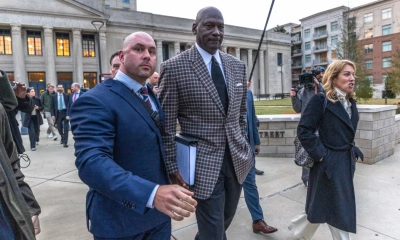
 Motorsports3 weeks ago
Motorsports3 weeks agoNascar legal saga ends as 23XI, Front Row secure settlement
-

 Motorsports3 weeks ago
Motorsports3 weeks agoSunoco to sponsor No. 8 Ganassi Honda IndyCar in multi-year deal
-
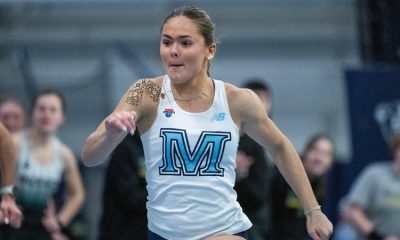
 Sports3 weeks ago
Sports3 weeks agoMaine wraps up Fall Semester with a win in Black Bear Invitational
-

 Motorsports2 weeks ago
Motorsports2 weeks agoRoss Brawn to receive Autosport Gold Medal Award at 2026 Autosport Awards, Honouring a Lifetime Shaping Modern F1
-
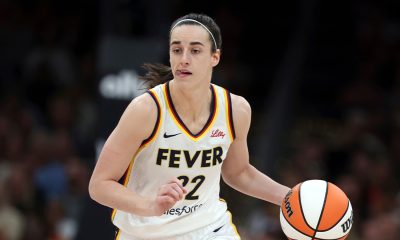
 Rec Sports3 weeks ago
Rec Sports3 weeks agoWNBA’s Caitlin Clark, Angel Reese and Paige Bueckers in NC, making debut for national team at USA camp at Duke
-

 Motorsports3 weeks ago
Motorsports3 weeks agoRick Hendrick comments after the NASCAR lawsuit settlement
-

 NIL3 weeks ago
NIL3 weeks agoNike Signs 10 LSU Athletes to NIL deals
-

 Rec Sports2 weeks ago
Rec Sports2 weeks agoStempien to seek opening for Branch County Circuit Court Judge | WTVB | 1590 AM · 95.5 FM
-
Sports3 weeks ago
Wisconsin defeats Stanford in NCAA regional semifinals: Updates, recap

































